
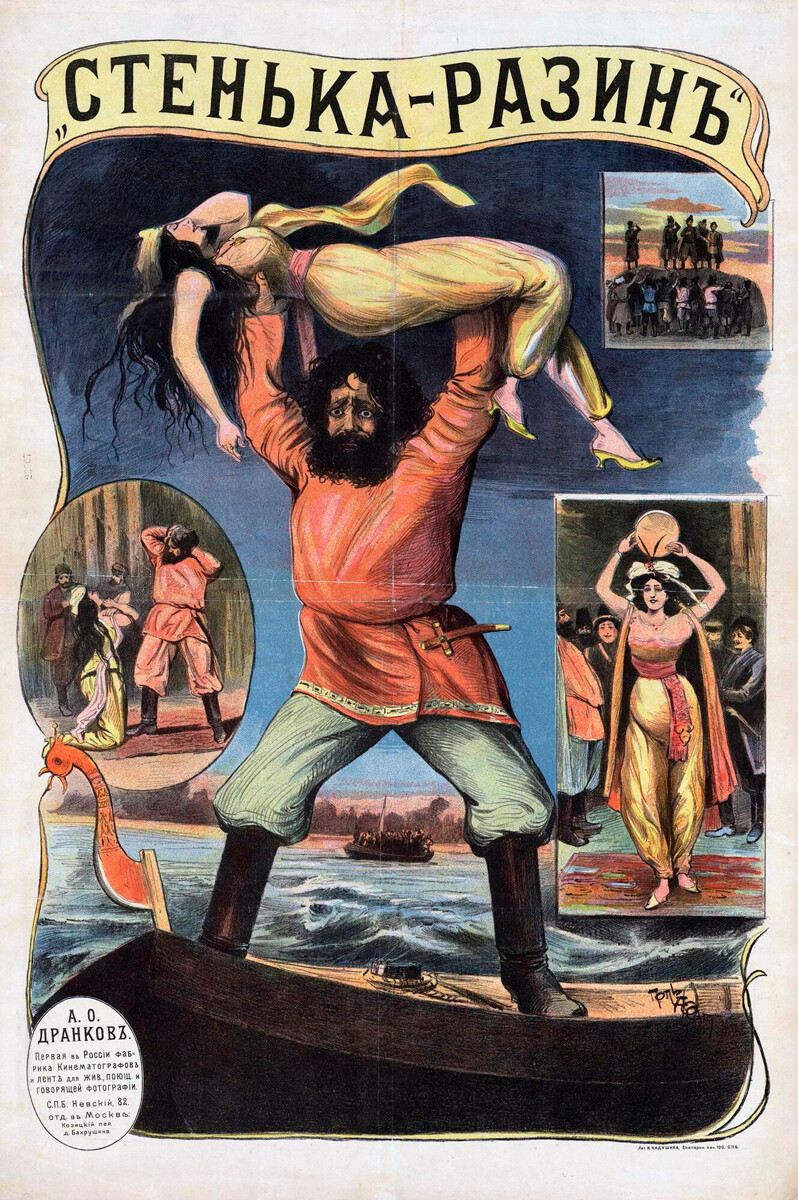
Poster for the "Stenka Razin" ("Ponizovaya Freemen"), 1908
Public DomainThe first Russian movie was called ‘Ponizovaya Volnitsa’ and was shot by Vladimir Romashkov in 1908. Its plot was based on a song about Stenka Razin – the main Russian rebel of the 17th century and the leader of a peasant revolt. The movie was just seven minutes long, but that was enough to leave people delighted with the new art form.
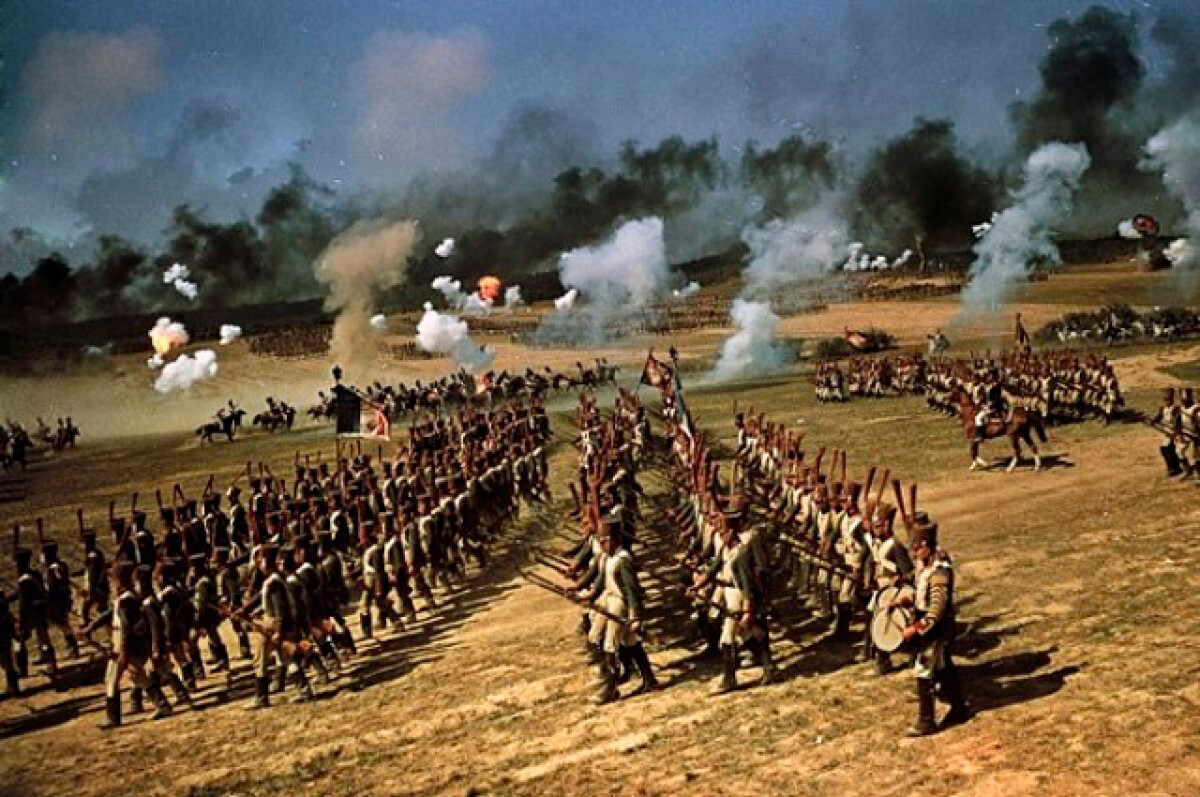
‘War and Peace’
Sergei Bondarchuk, 1965/MosfilmFifteen thousand infantry and a 950-saber cavalry regiment, with everyone carrying a weapon and wearing a historical outfit. All of this was needed for the making of ‘War and Peace’ (1965) by Sergei Bondarchuk, the most expensive Soviet movie in history. To make battle scenes look realistic, the creators of the movie had to build 50 different sets, eight bridges (three of them – over the Dnieper River), use 23 tons of explosives, 40,000 liters of kerosene, 15,000 smoke grenades and 1,500 shells. The movie’s budget amounted to an astronomical 100 million dollars at the 1967 exchange rate.
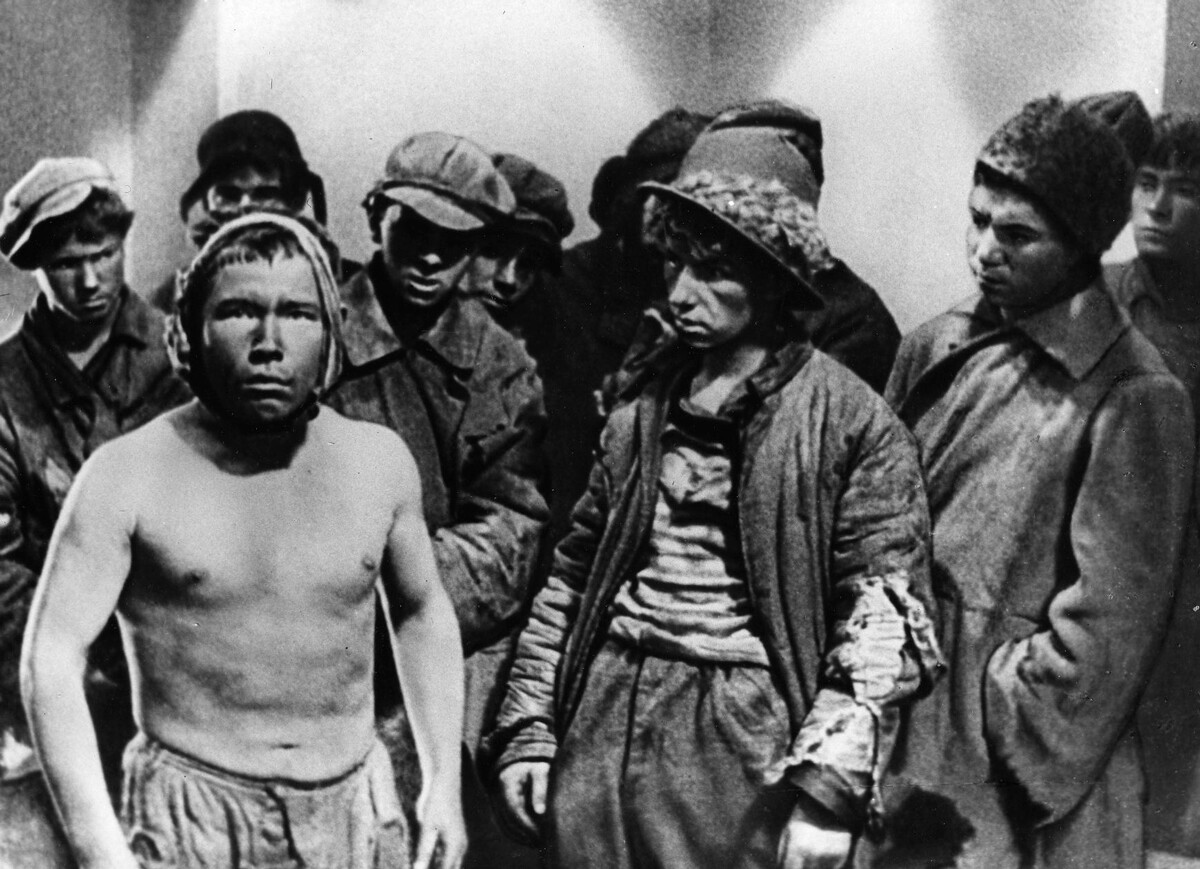
‘Road to Life’ (1931) by Nikolai Ekk is a movie about troubled teens, “reeducated” through work by the Party in a special institution. It made waves in the country. It was even banned; initially, the censors were bothered by its excessive realism. But then, Stalin ordered the release of the movie. After that, ‘Road to Life’ received the Venice International Film Festival award; one of the theaters in New York played the movie for an entire year. Apart from the novelty of having sound, it was simply a very good movie.
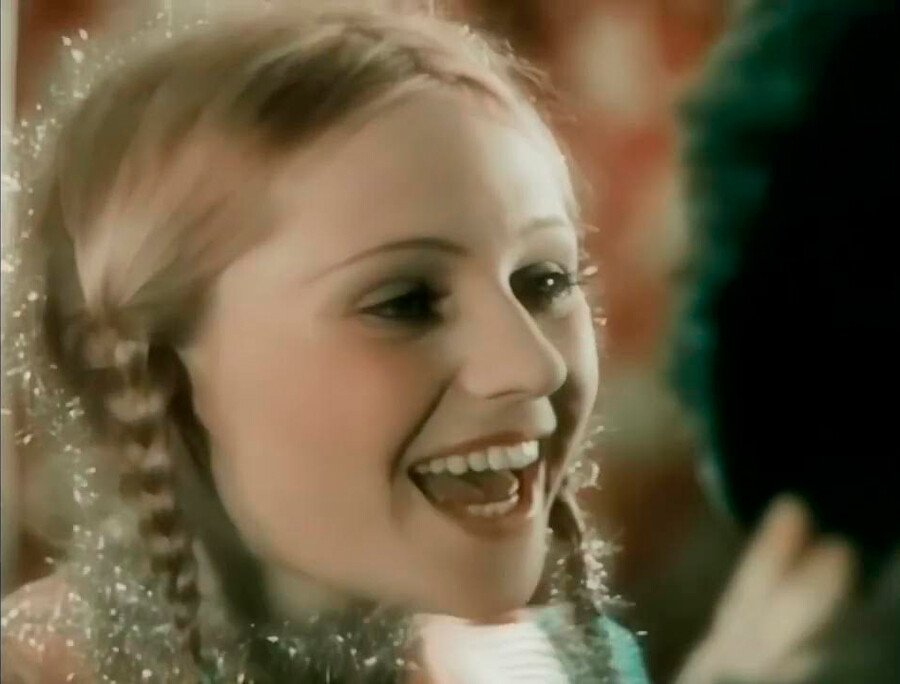
Nikolai Ekk is the man who revolutionized cinema… twice. Apart from making the first movie with sound, he also created the first color movie. In 1936, the movie ‘The Nightingale’ came out – about the workers of a porcelain factory fighting for their rights and starting a rebellion in pre-revolutionary Russia.
However, the regime didn’t spare the pioneer director. A couple of years after ‘The Nightingale’ premiered, Ekk fell into disgrace. His teacher, theater director Vsevolod Meyerhold, was branded “an enemy of the people”, but Ekk refused to testify against him. For this (officially it was under the pretext of his “lack of professionalism”) Ekk was suspended from directing; he never shot anything but educational works again.
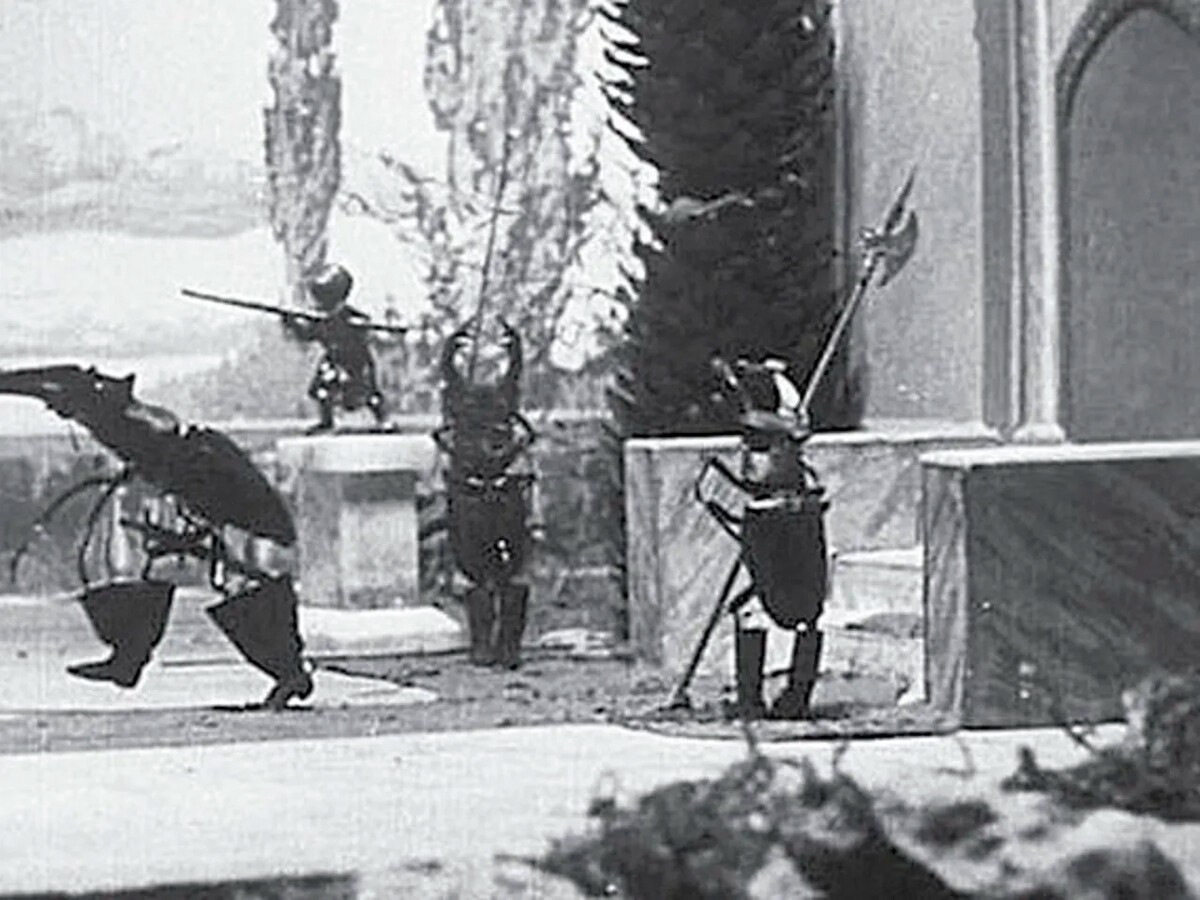
Crowds of people went to see the first cartoon over the course of several years. ‘The Beautiful Leukanida’ by Ladislas Starevich was released in 1912. The 10-minute film about a beetle love story, where the main roles were played by real insects, made a big splash. People seriously believed that Starevich trained the beetles, forcing them to wage war against each other and confess their love. In reality, the beetles were, of course, dead; the director had skillfully hung them on a wire.
By the way, the Bolsheviks were so outraged by the unfaithful behavior of Leukanida, the queen of beetles, that, after the Revolution, they actually went and renamed the cartoon to ‘Courtesan on the Throne’.
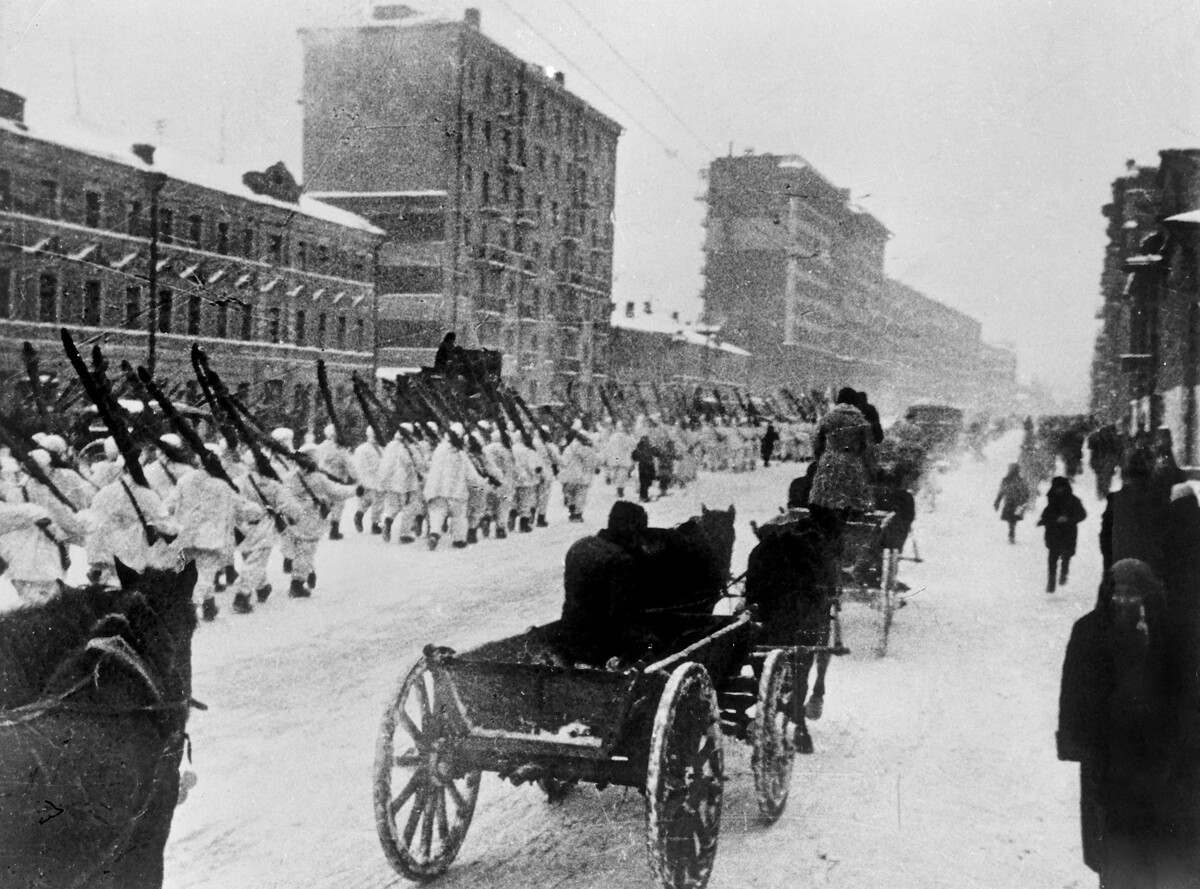
The first recognition from colleagues across the pond was received by Soviet documentalists. In 1943, the documentary ‘Rout of the German troops near Moscow’ won an Oscar. This movie, composed of the chronicles of the battles for Moscow, was made by the order of Stalin through the heroic efforts of 15 frontier operators. They were filming in minus 30 degree cold, editing day and night in non-heated editing rooms; they wouldn’t even go down to shelters during air raids.
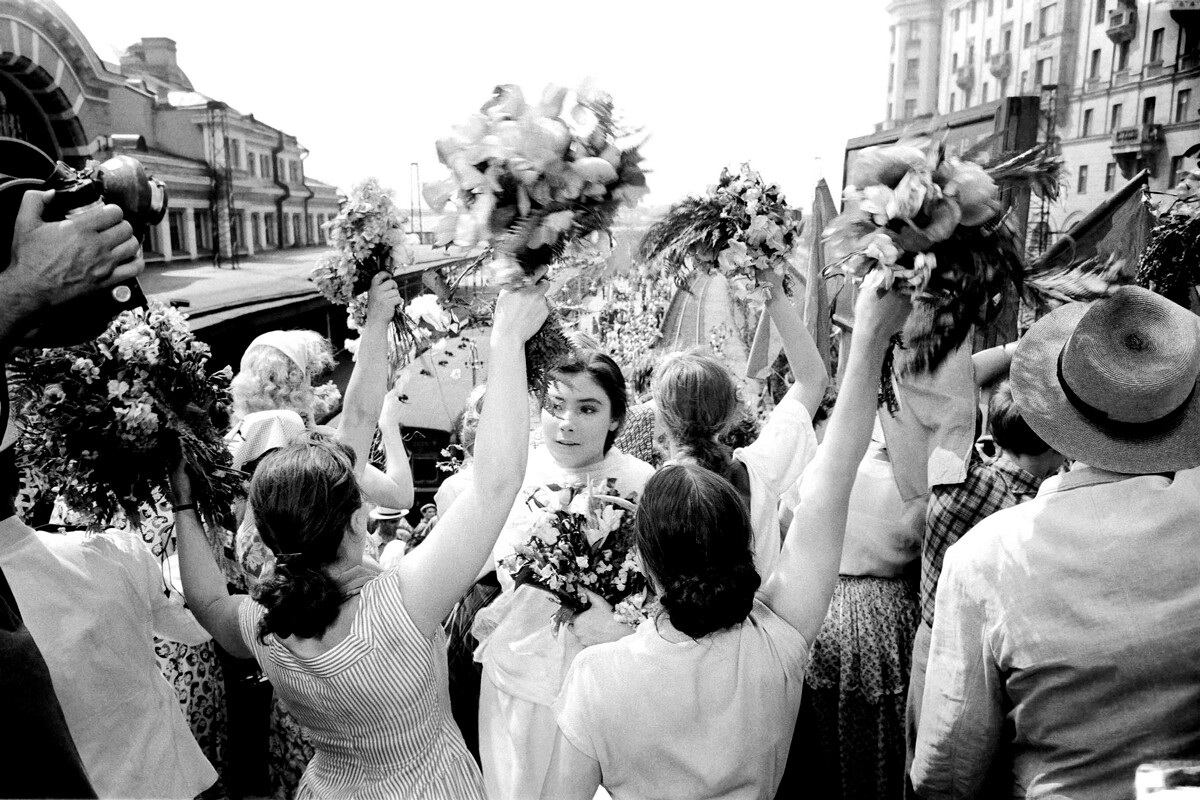
Mikhail Kalatozov, 1957/Mosfilm
Again, ‘War and Peace’ (1965) by Bondarchuk again takes the cake: the big screen adaptation of the novel of the same name won 10 awards at prestigious international film festivals, including an Oscar (it was also the first Soviet Oscar for a feature film). Among other most decorated movies are: ‘The Cranes Are Flying’ (1957) by Mikhail Kalatozov, ‘Ivan’s Childhood’ (1962) and ‘Solaris’ (1973) by Andrei Tarkovsky, ‘The Ascent’ (1976) by Larisa Shepitko, ‘Burnt by the Sun’ (1994) by Nikita Mikhalkov and ‘The Return’ (2003) by Andrey Zvyagintsev.
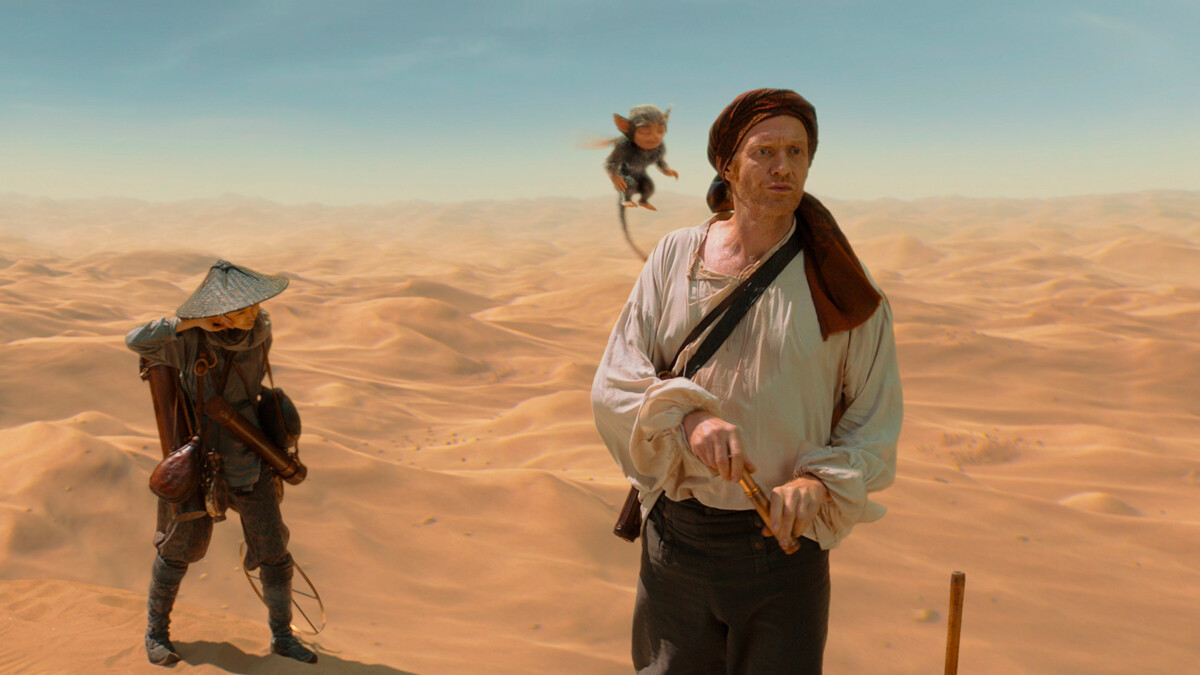
‘Viy 2: Journey to China’ (2019) is a horror movie with fantasy elements, based on Nikolai Gogol’s novella ‘Viy’. To film it, 49 million dollars were spent – for now, this is a record for the Russian cinema industry. The majority of it was used for complex CGI (it was done by the same company that worked on ‘Game of Thrones’), as well as for foreign actors’ fees – it features Jason Flemyng, Jackie Chan and Rutger Hauer. However, the movie flopped at the box office: it only collected $5 million in Russia and $14 million internationally.
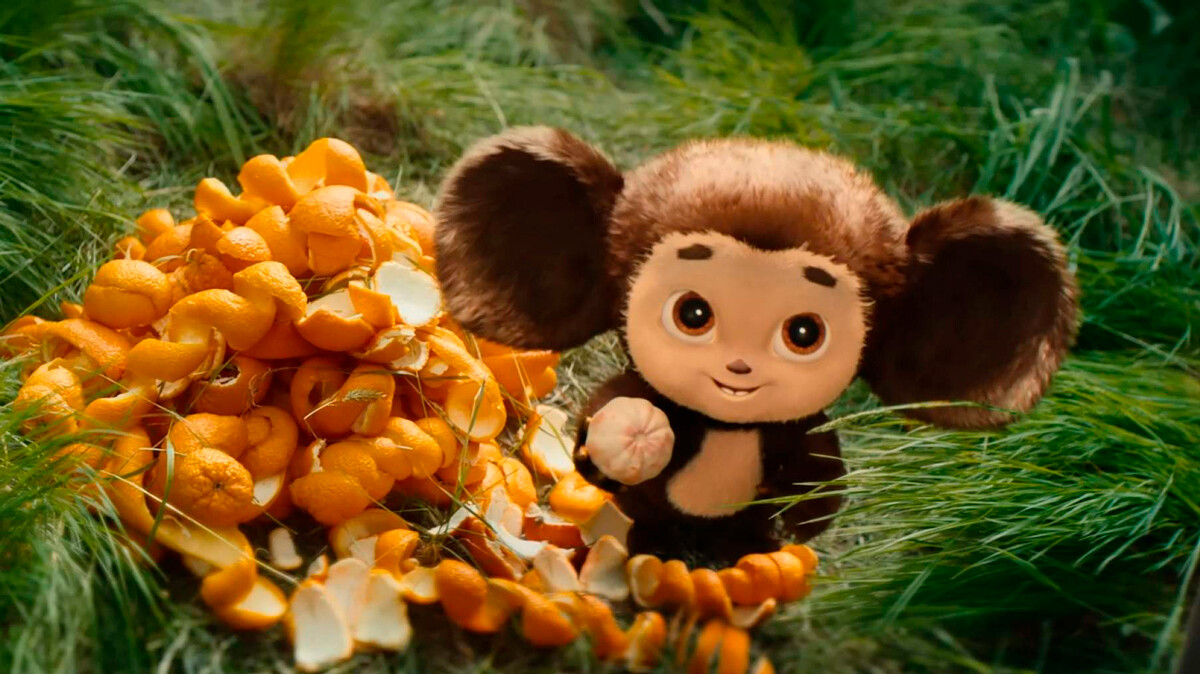
‘Cheburashka’ (2023), a movie about a fairy tale character with huge ears invented by Eduard Uspensky cleaned up at the Russian box office, raking in a record $94.5 million.
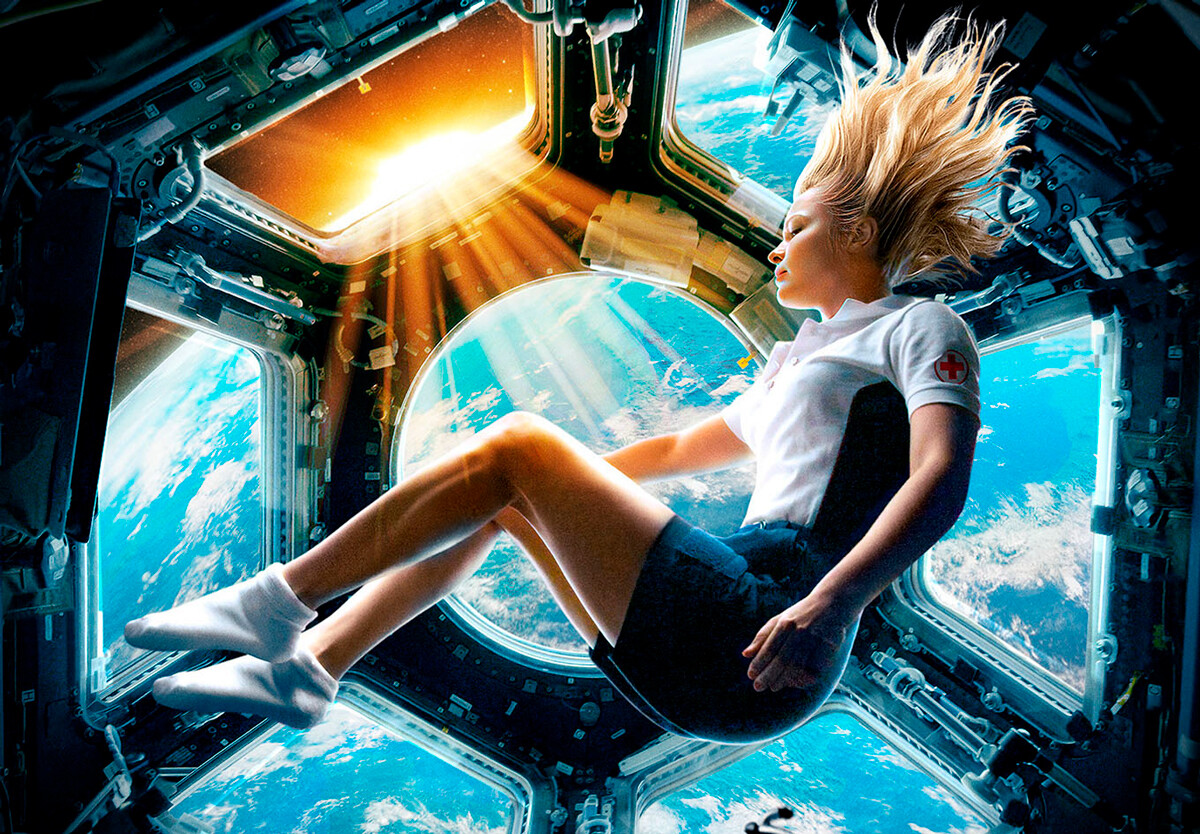
The first movie in the world for which the filming crew was literally sent to space, appeared in 2023. It was ‘The Challenge’ by Klim Shipenko – a project, for which actress Yulia Peresild and the movie’s director had to spend almost two weeks on the International Space Station. About an hour of real footage in zero gravity was featured in the movie. With that, we can’t say it cost much more than some studio production about space. The budget of ‘The Challenge’ was less than 1 billion rubles (approx. $15 million).
If using any of Russia Beyond's content, partly or in full, always provide an active hyperlink to the original material.
Subscribe
to our newsletter!
Get the week's best stories straight to your inbox